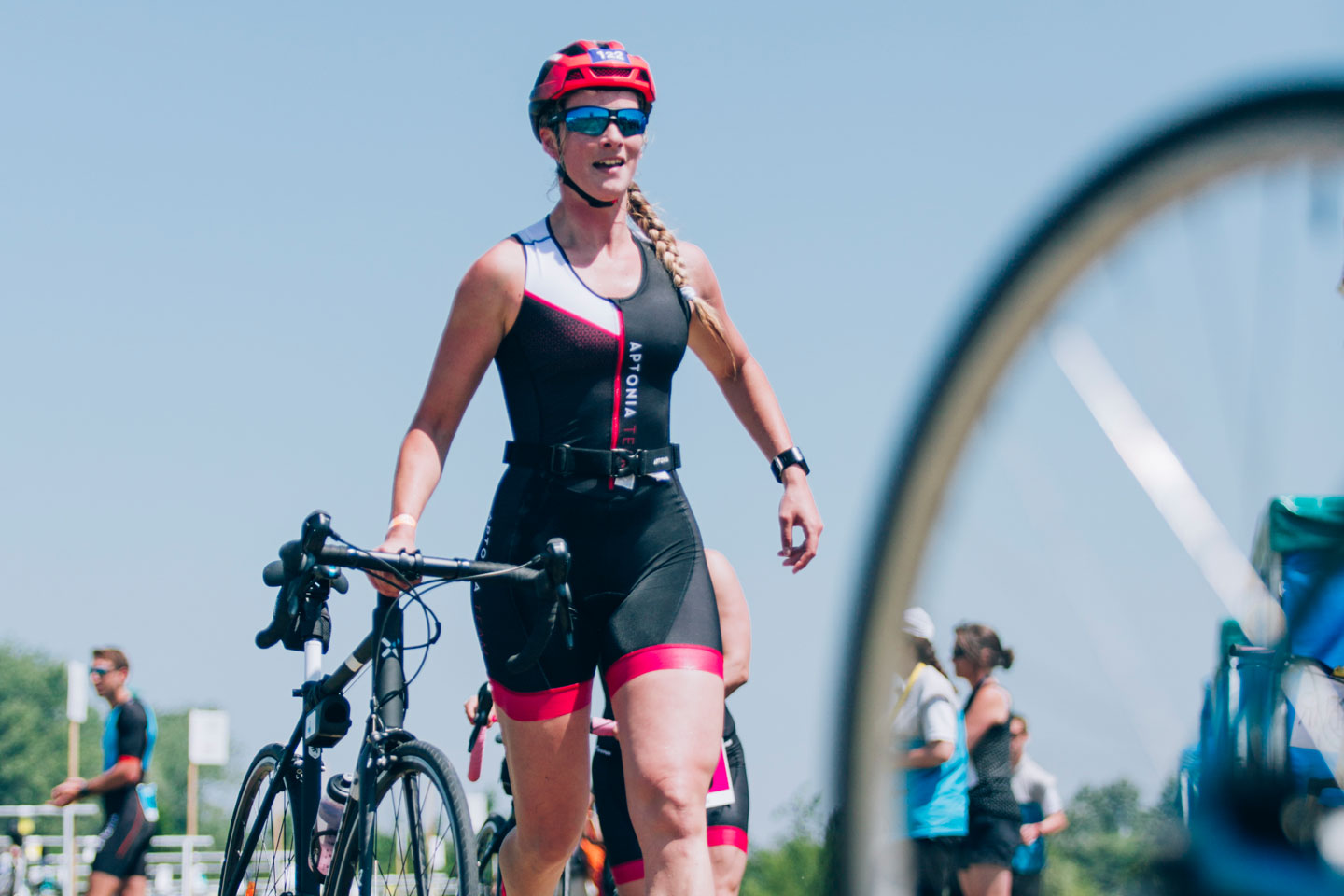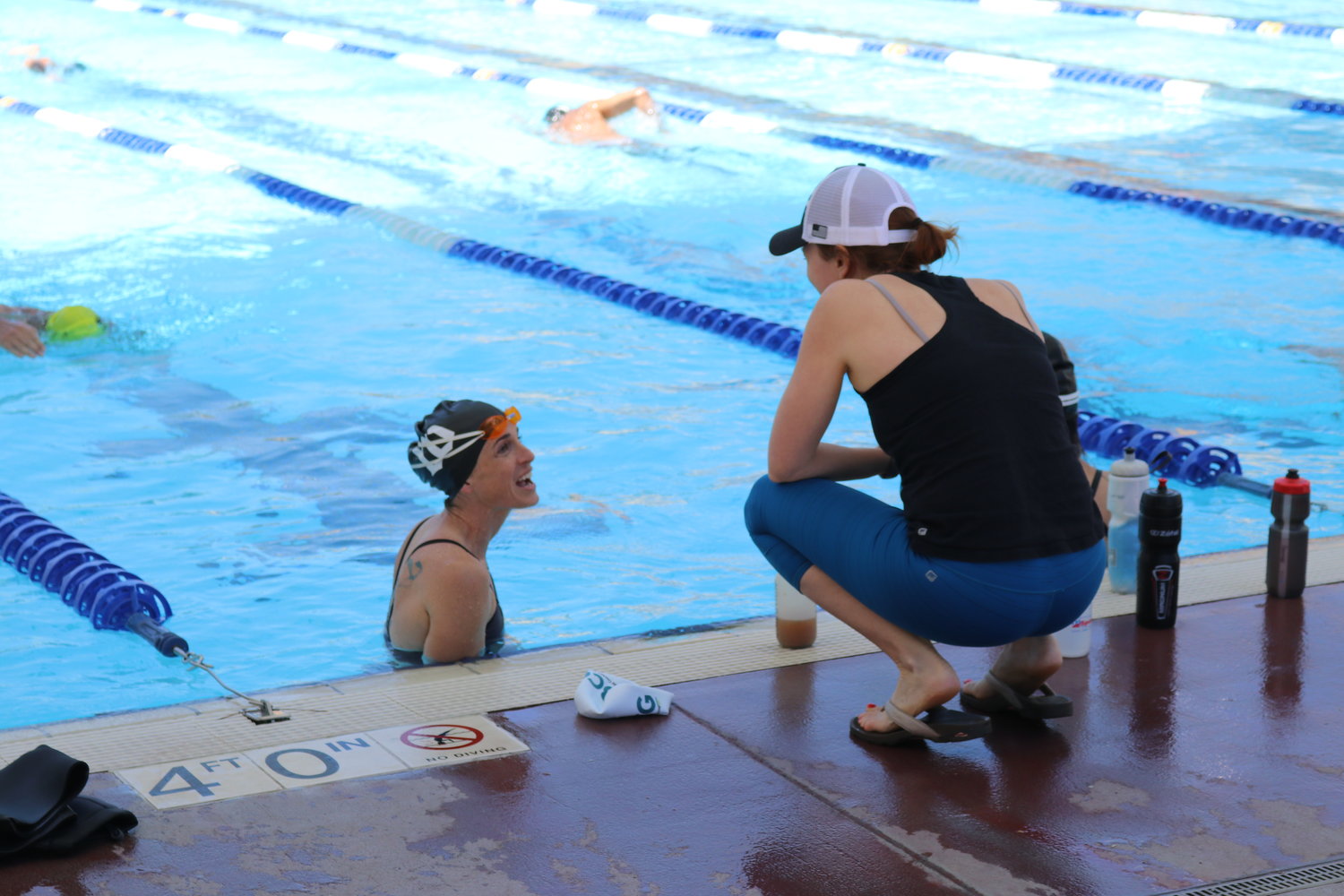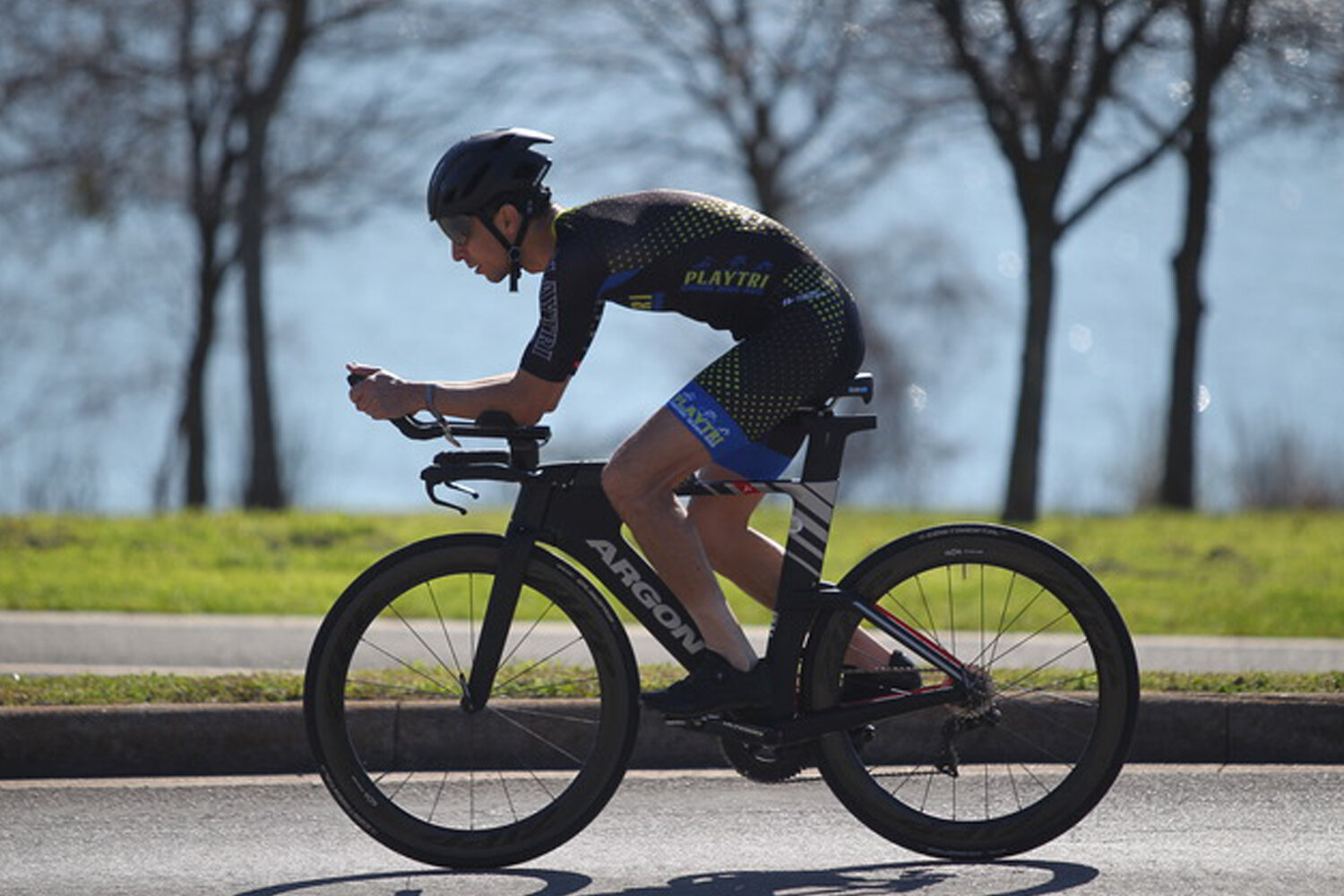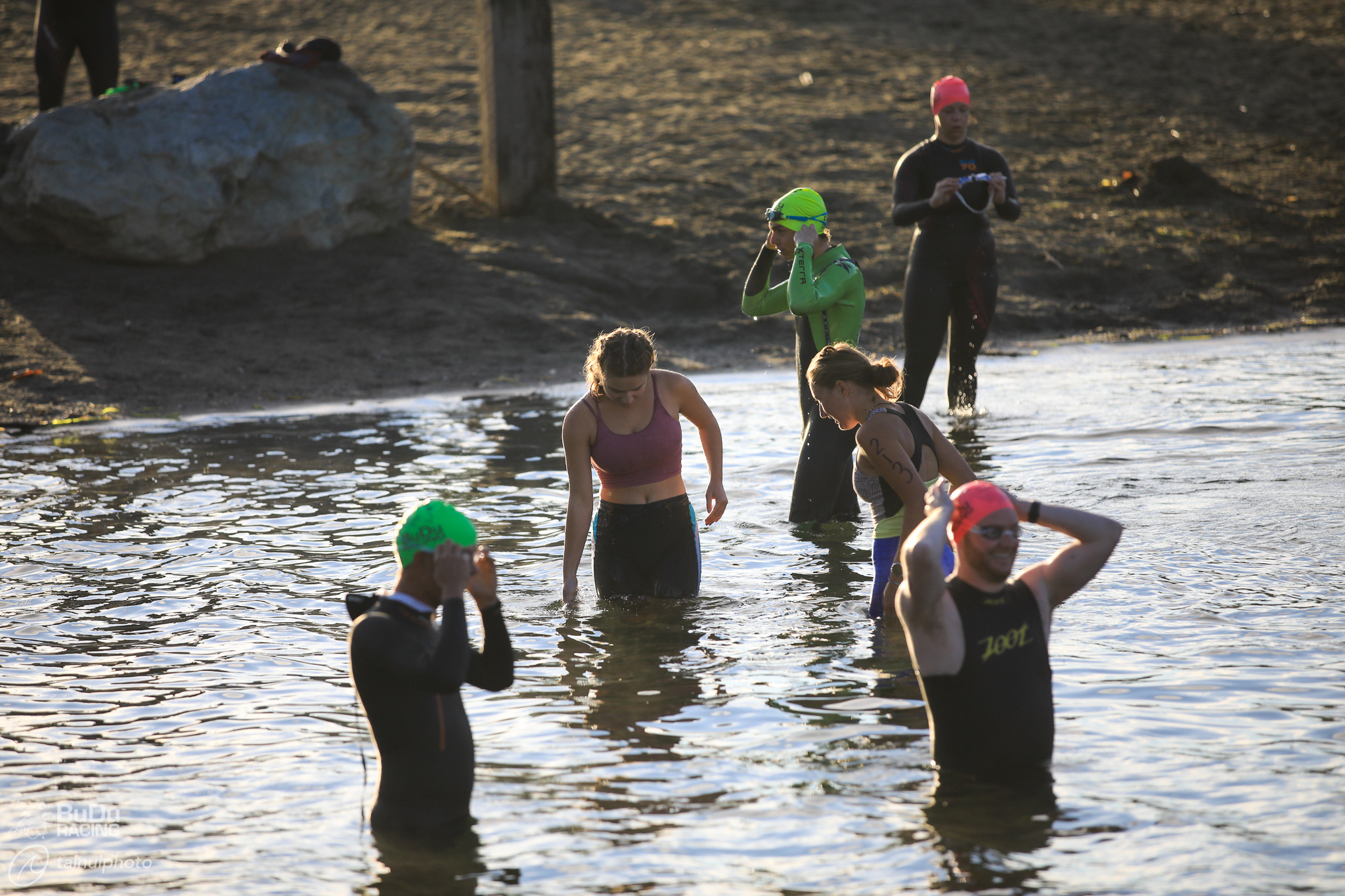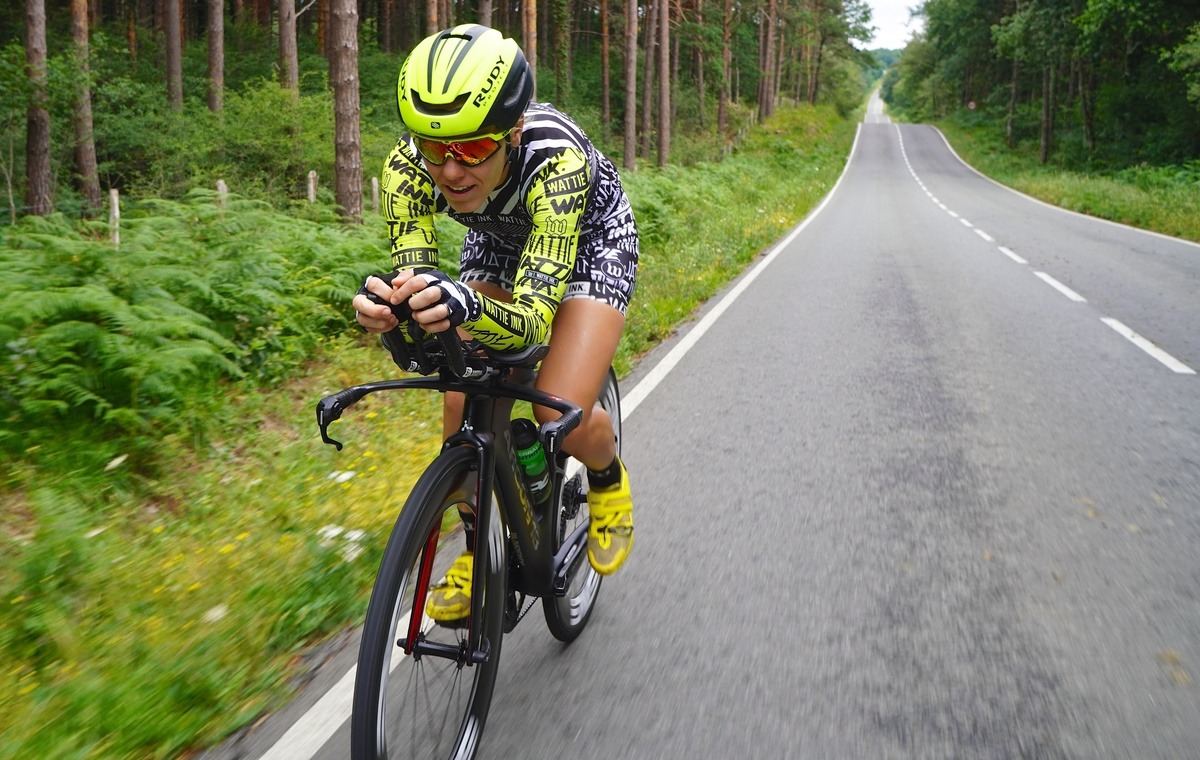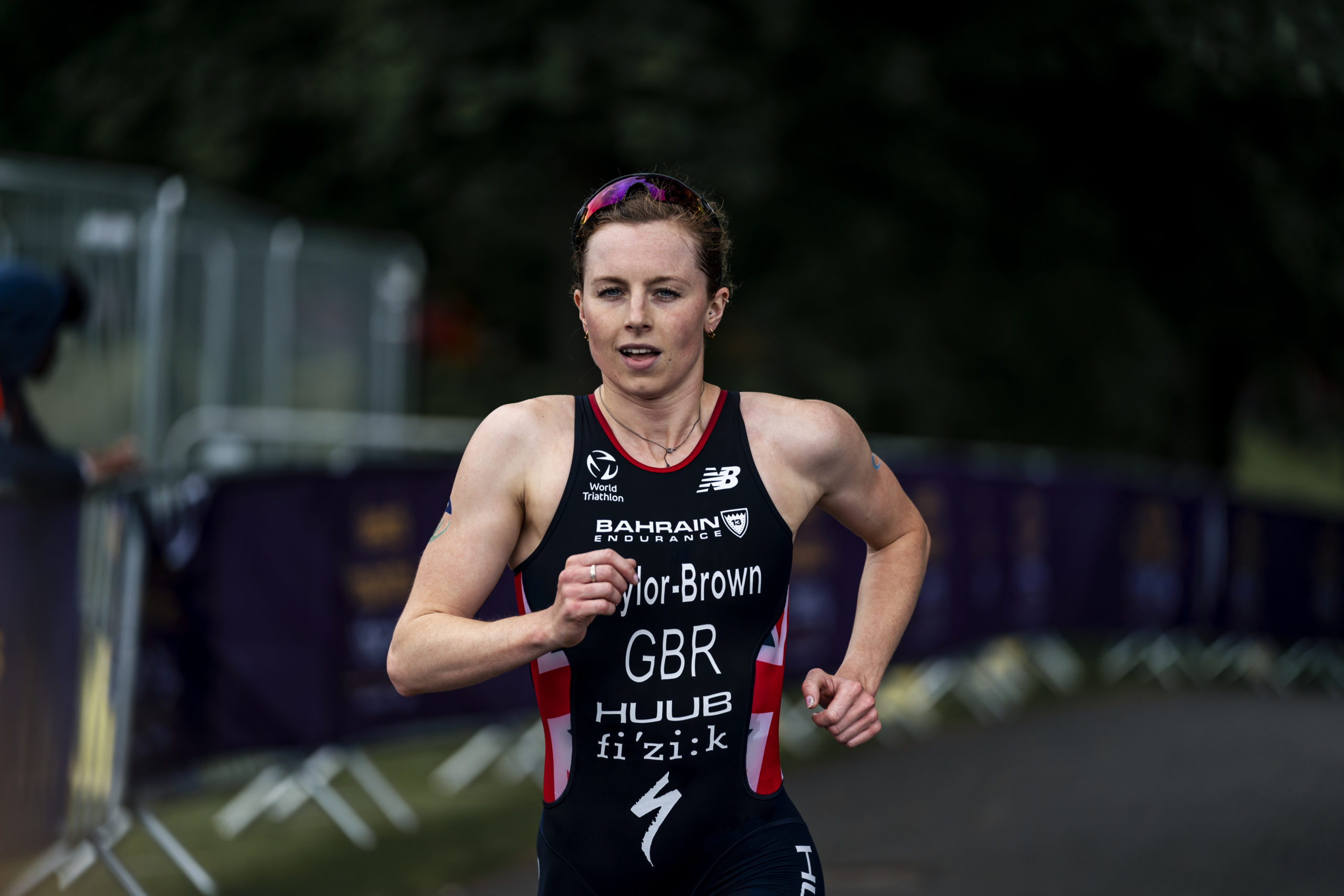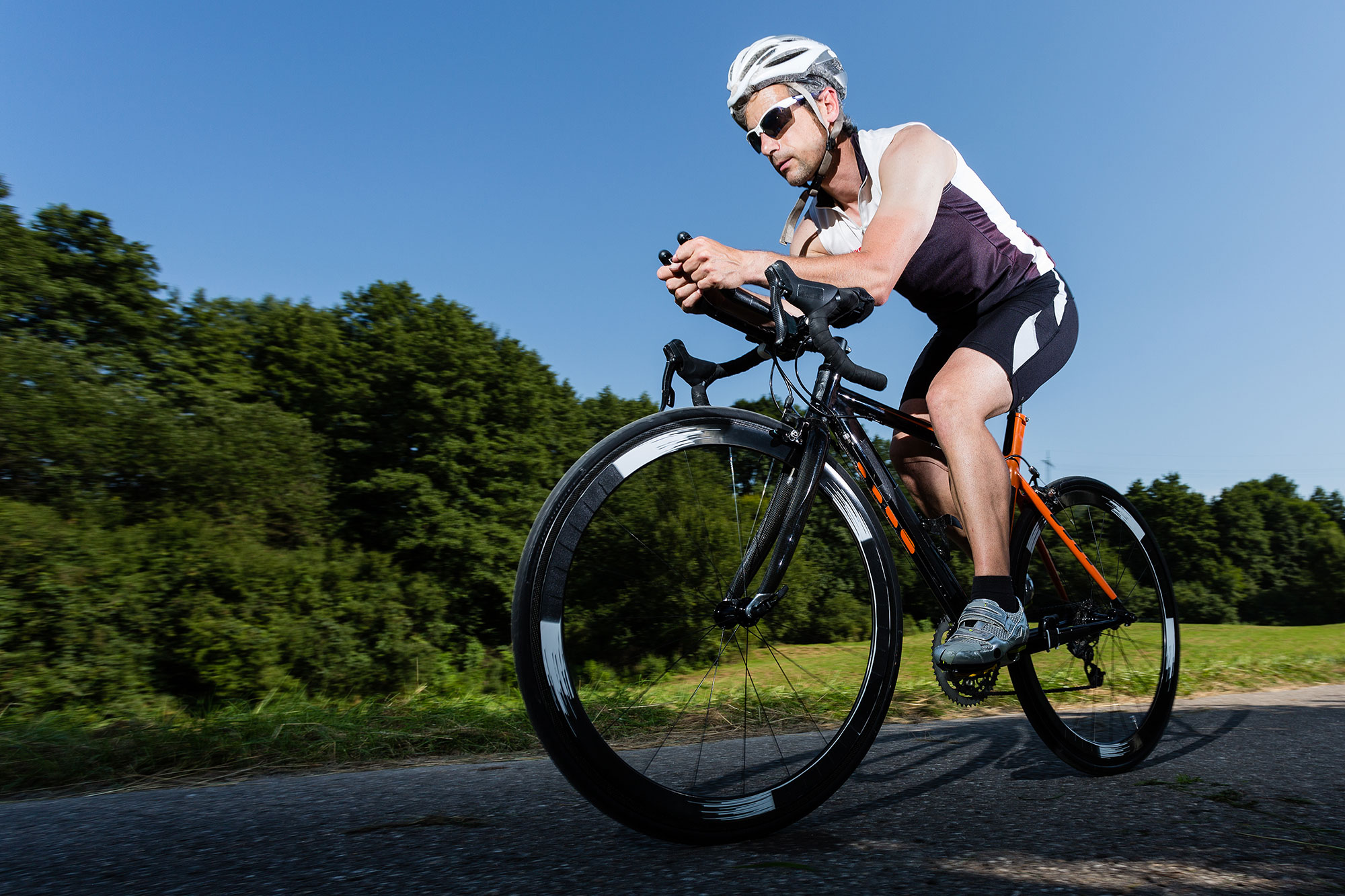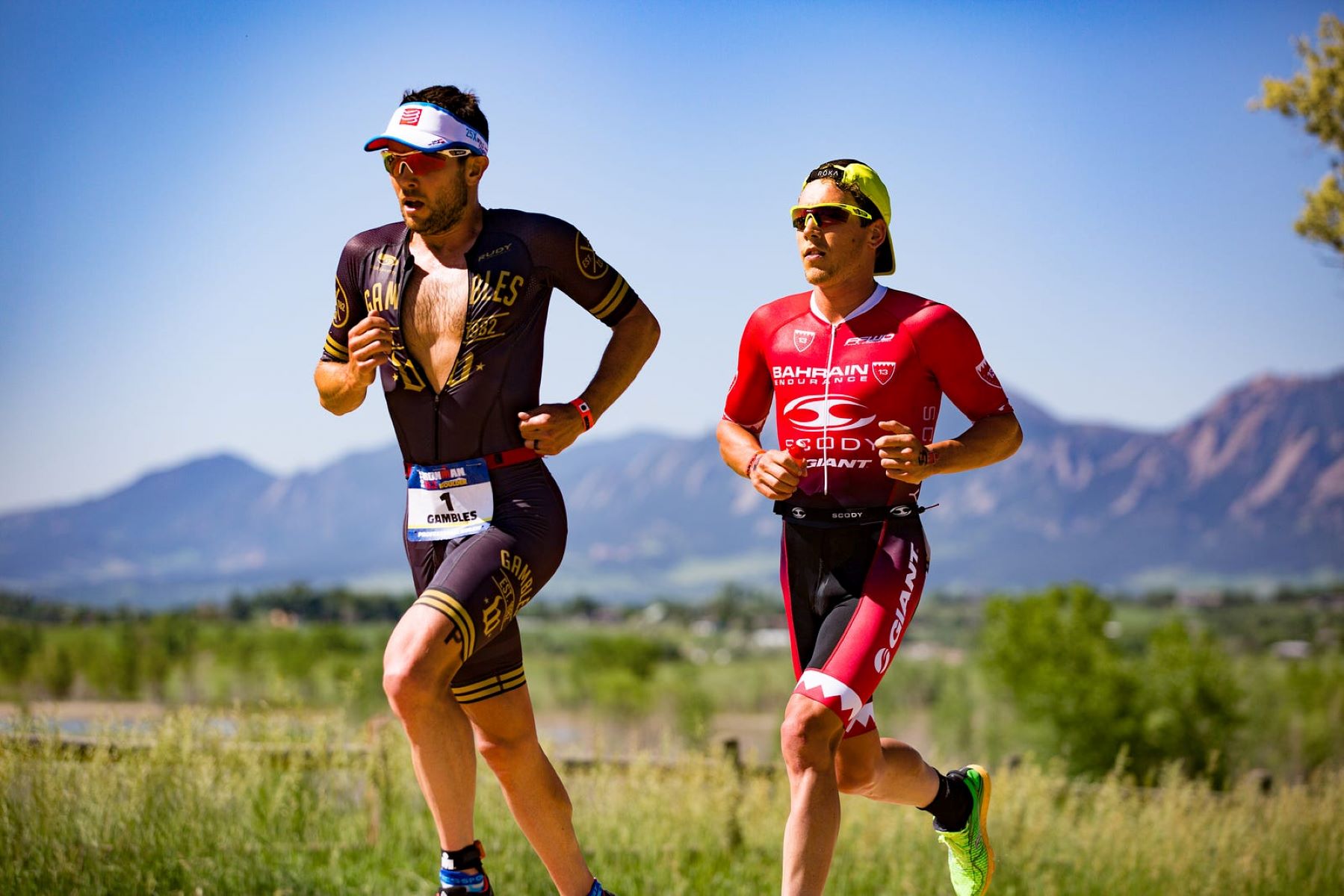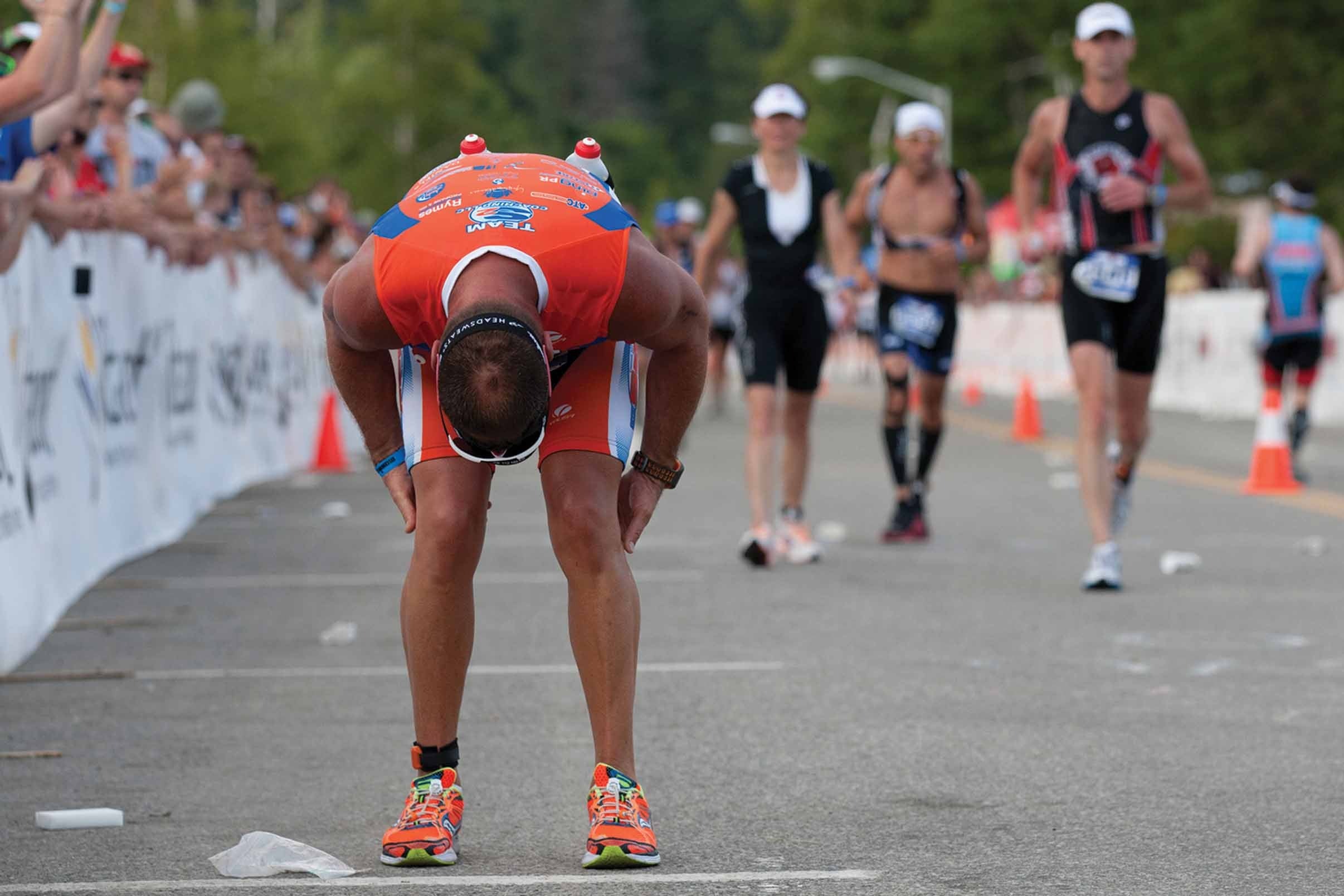Home>Misc>Featured>Triathlon Training: What To Do In The Offseason


Featured
Triathlon Training: What To Do In The Offseason
Modified: March 1, 2024
Looking for ways to stay fit during the triathlon offseason? Check out our featured triathlon training tips to keep your skills sharp all year round.
Introduction
Triathlon, a multisport endurance event consisting of swimming, cycling, and running, is a challenging and demanding sport that requires athletes to push their physical and mental limits. To excel in triathlon, athletes must not only focus on their training during the competitive season but also make the most of the offseason to ensure proper rest, recovery, and preparation for the next season.
The offseason, also known as the “off-season” or “recovery phase,” is a crucial period for triathletes. It is a time to unwind, rejuvenate, and reflect on the previous season’s accomplishments and setbacks. The offseason provides an opportunity for athletes to address any physical or mental fatigue, prevent injuries, and set new goals for the upcoming season. It also allows triathletes to explore new training methods, cross-train, and improve their overall fitness.
Many athletes make the mistake of neglecting the offseason or treating it as a time of complete inactivity. However, this can be detrimental to their performance in the long run. The offseason is a valuable time to give the body a break from the intense training and racing routine and rebuild the foundation for the next season.
In this article, we will explore the various aspects of offseason training for triathletes. From rest and recovery to goal-setting, strength and conditioning, cross-training, nutrition, mental preparation, injury prevention, and planning for the next season, we will provide you with a comprehensive guide to making the most of your offseason.
So, whether you’re a professional triathlete or a passionate amateur, grab your favorite beverage, get comfortable, and let’s delve into the world of triathlon offseason training!
Importance of the Offseason
The offseason is a crucial phase in a triathlete’s training cycle, providing numerous benefits that contribute to long-term success and overall performance. While it may be tempting to maintain a rigorous training schedule year-round, understanding the importance of the offseason is key to avoiding burnout and maximizing improvement.
One of the primary benefits of the offseason is the opportunity for rest and recovery. Endurance sports like triathlon put a significant strain on the body, leading to physical and mental fatigue. The offseason allows athletes to recharge their batteries and repair any accumulated wear and tear. By taking time off from intense workouts and competitions, athletes can reduce the risk of overtraining, prevent injuries, and restore their energy levels.
Moreover, the offseason is a time for athletes to evaluate their performance during the previous season. Reviewing race results, training logs, and performance data can provide valuable insights into strengths and weaknesses. This self-reflection and analysis enable athletes to identify areas for improvement and establish more effective training plans for the next season. Without the offseason, athletes would miss out on this crucial opportunity for self-assessment and growth.
Setting new goals is another essential aspect of the offseason. Triathletes can use this time to reassess their long-term objectives and break them down into smaller, achievable milestones. By setting specific, measurable, attainable, relevant, and time-bound (SMART) goals, athletes can stay motivated, focused, and driven throughout the training process. Goal-setting during the offseason provides a roadmap for training and helps athletes stay committed and on track during the upcoming season.
In addition to rest and goal-setting, the offseason allows athletes to prioritize strength and conditioning. While endurance training is vital for triathletes, neglecting strength training can result in muscle imbalances and increased injury risk. During the offseason, athletes can work on building strength, improving flexibility, and addressing any areas of weakness. Incorporating strength and conditioning exercises into the offseason training routine can enhance overall performance and contribute to injury prevention.
Another advantage of the offseason is the opportunity to engage in cross-training activities. Triathlons require proficiency in swimming, cycling, and running, but athletes can diversify their training regimen during the offseason. Exploring other sports such as yoga, Pilates, hiking, or weightlifting not only provides a mental break but also helps improve overall fitness and prevents burnout. Cross-training activities can improve strength, flexibility, coordination, and cardiovascular fitness, all of which are beneficial for triathlon performance.
Overall, the offseason is a crucial phase that should not be underestimated or overlooked by triathletes. It offers an array of benefits such as rest and recovery, self-reflection, goal-setting, strength and conditioning, cross-training, and injury prevention. By taking full advantage of the offseason, triathletes can set themselves up for success in the next season and continue their journey towards achieving their triathlon goals.
Rest and Recovery
Rest and recovery play a vital role in the offseason training of triathletes. After months of intense training and racing, allowing the body and mind to recuperate is essential for long-term success and overall performance. The offseason is the perfect time to prioritize rest and implement effective recovery strategies.
Physical rest is one of the primary components of offseason recovery. It involves reducing or even eliminating high-intensity workouts and giving the body time to heal and repair. Triathletes should aim for at least two to four weeks of reduced training volume and intensity during the offseason. This break allows muscles, tendons, and ligaments to recover from the repetitive stress of training, reducing the risk of overuse injuries.
In addition to physical rest, mental rejuvenation is equally important. Endurance sports like triathlon require a significant amount of mental focus and determination. Constantly pushing the limits can lead to mental fatigue and burnout. Taking a break from the pressures of training and competition can help rekindle the passion for the sport and create a healthy mindset. Engaging in activities outside of triathlon, spending time with loved ones, pursuing hobbies, or simply enjoying leisure time can help recharge the mental batteries.
During the offseason, athletes should also prioritize quality sleep. Adequate and restful sleep is essential for recovery and has a profound impact on overall performance. Aim for a consistent sleep schedule and create a sleep-friendly environment to optimize recovery and ensure mental and physical well-being.
In addition to rest, various recovery strategies can be incorporated into the offseason routine. Massage therapy, foam rolling, and stretching are effective techniques to release muscle tension, improve flexibility, and promote blood circulation. These methods can aid in the recovery process and alleviate any residual soreness or tightness from previous training and racing.
Nutrition plays a crucial role in both training and recovery. During the offseason, athletes should focus on nourishing their bodies with balanced meals consisting of lean protein, whole grains, fruits, and vegetables. Adequate hydration is also essential for optimal recovery. Avoiding excessive alcohol and processed foods while prioritizing nutrient-dense choices can support the body’s recovery processes and promote overall well-being.
Lastly, active recovery should be incorporated into the offseason routine. Light exercises such as swimming, cycling, or running at a low intensity can aid in flushing out toxins, promoting circulation, and maintaining cardiovascular fitness. However, it is crucial to keep the intensity and duration significantly lower than during the competitive season to allow the body to heal and regenerate.
By prioritizing rest and recovery during the offseason, triathletes can give their bodies the chance to heal, rebuild, and prepare for the upcoming season. Implementing effective recovery strategies, taking time off from intense training, focusing on mental well-being, and nurturing the body with proper nutrition can contribute to improved performance and longevity in the sport.
Evaluating the Previous Season
Reflecting on the previous triathlon season is a crucial step in an athlete’s offseason training. Evaluating performance, analyzing strengths and weaknesses, and identifying areas for improvement can help guide training strategies and set goals for the upcoming season.
One of the first steps in evaluating the previous season is reviewing race results and performance. Examining race times, finishing positions, and split times can provide valuable insights into areas of strength and areas that need improvement. Identify which disciplines (swimming, cycling, or running) were stronger and which disciplines may require more attention during the offseason.
In addition to race results, it is essential to analyze training data and logs. Evaluate the consistency of training sessions, volume, and intensity. Was the training plan effective in preparing for races? Did the athlete maintain a good balance between different training modalities? Analyzing training data can help identify patterns, strengths, and areas for improvement.
Besides quantitative data, it is also vital to consider qualitative factors. Reflect on how the athlete felt during training and races. Did they experience any recurring injuries or fatigue? Were there mental barriers or psychological obstacles to overcome? Understanding these factors can help identify potential causes and implement changes to address them in the offseason.
The offseason is an ideal time for athletes to seek feedback from coaches or mentors. Discussing the previous season’s performance with a qualified expert can provide valuable insights and an outside perspective. Coaches can help identify changing trends in the sport, offer advice on training methodologies, and suggest areas for improvement based on their experience and expertise.
Self-reflection is also a critical part of evaluating the previous season. Ask yourself questions such as: What were the highlights of the season? Were there any disappointments or setbacks? What lessons were learned from those experiences? Reflecting on the emotional and mental aspects of the season can help athletes develop a deeper understanding of their motivations, goals, and mindset.
Based on the evaluation of the previous season, athletes can set specific goals for the upcoming season. These goals can be focused on improving performance in specific disciplines, achieving personal bests, or qualifying for specific races or events. Setting realistic and measurable goals provides a clear direction for offseason training programs and helps athletes stay motivated.
Evaluating the previous season is not about dwelling on shortcomings or failures but rather about acknowledging achievements and understanding areas for growth. It is an opportunity to learn from past experiences and make informed decisions about training priorities, strategies, and goals for the next season.
By taking the time to evaluate the previous season comprehensively, athletes can lay a solid foundation for the offseason training program and approach the next season with clarity, purpose, and a plan for improvement.
Setting Goals
Setting goals is a critical component of offseason training for triathletes. Whether you’re a seasoned athlete or a beginner, having clear and well-defined goals provides direction, motivation, and a sense of purpose throughout the training process. The offseason is the perfect time to set new goals and establish a roadmap for the upcoming triathlon season.
When setting goals, it’s essential to make them specific, measurable, attainable, relevant, and time-bound (SMART). Specific goals outline precisely what you want to achieve. Instead of saying, “I want to improve my swimming,” a specific goal would be, “I want to decrease my 100-meter swim time by 10 seconds.” Measurable goals allow you to track your progress and determine if you have achieved them or if adjustments need to be made. Attainable goals should challenge you but also be realistically achievable with your current abilities and resources. Relevant goals align with your overall aspirations and are meaningful to you as an athlete. Time-bound goals have a set deadline or timeframe for accomplishment, providing a sense of urgency and focus.
Consider both outcome goals and process goals when setting goals for the offseason. Outcome goals are focused on the end result, such as finishing a specific race distance in a certain time or qualifying for a particular event. Process goals, on the other hand, focus on the actions and behaviors required to achieve the outcome goals. These can include completing a certain number of strength workouts per week, improving technique in a specific discipline, or consistently following a nutrition plan. A combination of outcome and process goals ensures a well-rounded approach to your offseason training.
Another aspect to consider when setting goals is periodization. Triathlon seasons typically consist of multiple races or events throughout the year. Setting shorter-term goals for each phase or race within the season can help you stay motivated and on track. For example, setting a goal to improve bike cadence or transition times for an early-season race and then adjusting goals for later races can provide a sense of progression and achievement throughout the season.
It is also important to set goals that challenge you and push you out of your comfort zone while still being realistic. Goals that are too easy may not provide sufficient motivation, while goals that are too far-fetched can lead to frustration and disappointment. Assess your current abilities and consider where you want to see improvement. Take into account factors such as available training time, other commitments, and any potential obstacles that might arise during the season.
Document your goals and keep them visible as a daily reminder of what you are working towards. This can be as simple as writing them down in a training journal or creating a vision board with inspiring images and quotes. Sharing your goals with a coach, training partners, or a supportive community can provide accountability and encouragement throughout the offseason.
Lastly, remember that goals can evolve and be adjusted as you progress through the season. Regularly review and reassess your goals to ensure they remain relevant and achievable. Celebrate the milestones along the way and don’t be afraid to adjust goals if circumstances change or new opportunities arise.
Setting goals during the offseason sets the tone for your training and provides a roadmap for success. With well-defined and SMART goals in place, you can stay motivated, focused, and committed throughout the offseason and beyond, propelling yourself towards a successful and fulfilling triathlon season.
Strength and Conditioning
Strength and conditioning training is a crucial component of offseason training for triathletes. While endurance training is essential for improving race performance, neglecting strength training can lead to muscle imbalances, decreased power output, and increased risk of injury. Incorporating a well-rounded strength and conditioning program during the offseason can enhance overall performance and contribute to long-term success in triathlon.
One of the primary benefits of strength training is the improvement in muscular strength and power. Building a solid foundation of strength helps triathletes generate more force and improve efficiency in all three disciplines: swimming, cycling, and running. This increased strength can translate into faster swim times, more powerful pedal strokes, and improved running speed.
In addition to strength, conditioning exercises enhance cardiovascular fitness and endurance. High-intensity interval training (HIIT), circuit training, and plyometric exercises can improve the body’s ability to handle the physical demands of triathlon by training the cardiovascular system to adapt to varying intensities and recover quickly.
Focusing on core stability is crucial for triathletes. A strong core provides a stable platform for powerful and efficient movement, improves balance, and helps prevent injuries. Exercises that target the core, such as planks, Russian twists, and medicine ball exercises, should be incorporated into the strength and conditioning routine.
Addressing muscle imbalances is another important aspect of strength training for triathletes. Endurance sports can lead to overdevelopment of certain muscle groups and neglect of others. A well-designed strength training program can aid in rebalancing these imbalances, reducing the risk of overuse injuries, and improving overall performance.
Triathletes should focus on functional movements that mimic the demands of swimming, cycling, and running. Exercises that involve multiple joints and muscles working together, such as squats, lunges, deadlifts, and push-ups, are great additions to the strength training routine. Incorporating compound exercises not only improves strength but also enhances coordination and overall movement efficiency.
Flexibility and mobility training should not be overlooked in the strength and conditioning program. Stretching exercises, foam rolling, and yoga can help improve flexibility, reduce muscle tightness, and enhance range of motion. Improved flexibility can prevent injuries and improve performance, especially in swimming and running where proper technique and range of motion are critical.
It is important to gradually progress the intensity and complexity of the strength and conditioning exercises. Starting with a solid foundation of basic movements and gradually increasing resistance, repetitions, or difficulty ensures proper form and minimizes the risk of injury. Working with a qualified strength and conditioning coach or personal trainer can help tailor a program specific to your needs and abilities.
The offseason is the ideal time to focus on strength and conditioning, as it allows for more dedicated and focused training without the added stress of regular racing. Remember to incorporate rest days and listen to your body to avoid overtraining.
By integrating a well-rounded strength and conditioning program into your offseason training routine, you can improve muscular strength and power, enhance cardiovascular fitness, prevent injuries, and optimize performance in all three disciplines of triathlon.
Cross-Training
Cross-training is a valuable addition to the offseason training program for triathletes. While triathlon requires proficiency in swimming, cycling, and running, incorporating other activities during the offseason can offer numerous benefits, including improved overall fitness, injury prevention, mental stimulation, and enhanced recovery.
One of the advantages of cross-training is the opportunity to engage in different types of activities that work different muscle groups. This helps prevent overuse injuries by reducing the repetitive stress on specific muscles and joints. By giving the body a break from the repetitive motions of swimming, cycling, and running, triathletes can develop overall strength and flexibility, reduce muscular imbalances, and enhance their performance in the triathlon disciplines.
Cross-training activities can vary based on individual preferences and availability. Some popular cross-training options include yoga, Pilates, strength training, hiking, rowing, kayaking, and circuit training. These activities offer a change of pace, relieve mental fatigue, and provide an opportunity to explore other aspects of fitness.
The offseason is an ideal time to focus on improving weak areas or skills that may have been neglected during the competitive season. For example, if the swim leg of the triathlon is a weakness, incorporating regular swimming sessions during the offseason can help improve technique and build confidence in the water. Similarly, if transitions are an area of concern, practicing quick transitions between the disciplines can promote better efficiency on race day.
Cross-training activities also contribute to mental stimulation and prevent monotony in training. Trying new sports or activities challenges the mind and adds variety to the training routine. This can reignite motivation, prevent burnout, and keep the athlete engaged during the offseason.
In addition to physical benefits, cross-training can aid in recovery during the offseason. Active recovery activities, such as light swimming, cycling, or easy hiking, can promote blood flow, reduce muscle soreness, and accelerate the healing process. These low-intensity workouts provide a break from high-intensity training while still keeping the body active and maintaining cardiovascular fitness.
When incorporating cross-training into the offseason routine, it is important to strike a balance. Triathletes should prioritize their primary disciplines while allowing adequate time for cross-training activities. The amount of cross-training will depend on individual goals, preferences, and availability. Setting specific goals for cross-training sessions can help structure the offseason training program and provide a sense of progression and achievement.
Remember to listen to your body and adapt cross-training activities accordingly. If an activity causes pain or excessive fatigue, it is essential to modify or avoid it. Consult a medical professional or coach if you have any concerns or questions about incorporating specific cross-training activities into your offseason routine.
Cross-training is a valuable tool to improve overall fitness, prevent injuries, keep the training routine fresh, and enhance recovery during the offseason. By diversifying your training regimen and exploring different activities, you can become a well-rounded athlete and set the stage for a successful triathlon season.
Nutrition and Diet
Nutrition plays a vital role in the offseason training of triathletes. Proper fueling and hydration are essential not only for optimal performance but also for overall health, recovery, and injury prevention. The offseason is the perfect time to focus on nutrition and establish healthy eating habits that support training goals and set the stage for a successful next season.
During the offseason, it’s important to maintain a balanced and nutrient-dense diet. Aim to include a variety of foods from all food groups, including lean protein, whole grains, fruits, vegetables, and healthy fats. This ensures that you’re receiving essential macronutrients and micronutrients for optimal performance and recovery.
Protein is crucial for triathletes as it supports muscle repair and growth. Include high-quality sources of protein such as lean meats, poultry, fish, eggs, dairy, legumes, and plant-based sources like tofu, tempeh, and quinoa. Distribute protein intake evenly throughout the day, including it in meals and snacks, to support muscle recovery and maintenance.
Carbohydrates are the primary fuel source for endurance exercise. During the offseason, triathletes should focus on consuming complex carbohydrates like whole grains, fruits, vegetables, and legumes. These provide sustained energy, fiber, and important vitamins and minerals. However, be mindful of portion sizes and choose carbohydrates that are appropriate for your activity level and training needs.
Fruits and vegetables provide essential vitamins, minerals, and antioxidants that support overall health and recovery. Aim to include a variety of colorful fruits and vegetables in your meals and snacks. They provide important nutrients that contribute to energy production, immune function, and tissue repair.
Hydration is critical for athletic performance and recovery. Adequate water intake helps regulate body temperature, transport nutrients, and remove waste products. Even in the offseason, it’s important to maintain proper hydration. Aim to drink water regularly throughout the day and consider factors like climate, training intensity, and sweat loss to adjust your fluid intake accordingly.
In addition to a well-balanced diet, it’s essential to strategize your nutrition around training sessions. Focus on pre-workout nutrition by consuming a carbohydrate-rich snack or meal 1-2 hours before training. This provides energy and prevents hunger during the session. Post-workout nutrition is crucial for muscle glycogen replenishment and tissue repair. Consume a combination of carbohydrates and protein within 30-60 minutes after training to optimize recovery.
It’s also important to be mindful of your overall energy balance. While the offseason may involve reduced training volume and intensity, it’s still important to match your calorie intake with your energy needs. Be mindful of portion sizes, listen to your hunger and fullness cues, and adjust your food intake based on your activity level and training goals.
Incorporating proper nutrition into your offseason routine also includes being aware of what you consume off the training field. Limit highly processed foods, added sugars, and excessive alcohol consumption, as these can negatively impact performance and overall health. Opt for whole, unprocessed foods whenever possible and prioritize nutrient-dense choices.
If you have specific dietary considerations or need guidance, consulting a registered dietitian with experience in sports nutrition can be beneficial. They can help tailor a personalized nutrition plan based on your individual needs, preferences, and training goals.
Remember that proper nutrition and hydration are ongoing commitments, not just during the competitive season. By focusing on a balanced, nutrient-dense diet and maintaining proper hydration, triathletes can support optimal performance, enhance recovery, prevent injuries, and lay the foundation for a successful triathlon season.
Mental Preparation
Mental preparation is a crucial aspect of offseason training for triathletes. In addition to physical fitness, having a strong and resilient mindset can significantly impact performance, motivation, and overall success in the sport. The offseason provides an excellent opportunity to focus on mental well-being and develop strategies to enhance mental toughness, confidence, and focus.
One of the key elements of mental preparation is goal-setting. Setting specific, measurable, and attainable goals during the offseason helps provide a clear direction and purpose for training. Goals create a sense of focus and motivate athletes to stay committed and disciplined in their offseason training. Visualizing the achievement of these goals during training sessions can enhance motivation and build confidence for the upcoming season.
Positive self-talk and developing a strong internal dialogue are also essential for mental preparation. The way athletes talk to themselves internally can greatly influence their mindset during training and competition. By replacing negative thoughts and doubts with positive and empowering self-talk, athletes can boost their confidence and maintain a strong belief in their abilities.
Mindfulness and relaxation techniques are valuable tools for managing pre-race nerves and maintaining focus during training. Practicing techniques such as deep breathing, meditation, or visualization exercises can help triathletes stay present, calm the mind, and build resilience to stress and anxiety. These practices can also aid in improving concentration, mental clarity, and decision-making during training and racing.
The offseason is an ideal time to develop mental resilience and learn to embrace challenges. Pushing beyond your comfort zone and purposely engaging in difficult workouts or situations can help build mental toughness. By exposing yourself to controlled adversity in training, you become better equipped to handle the inevitable challenges and obstacles that arise in competition.
Forming a strong support system is another crucial aspect of mental preparation. Surrounding yourself with a positive, encouraging, and like-minded community can provide motivation and accountability during the offseason. Training partners, coaches, or fellow athletes can offer advice, share experiences, and provide support during both the highs and lows of training.
It’s important to remember that mental preparation is not only about the moments leading up to a race but also the mindset throughout the entire training process. Embrace the process, appreciate the small victories, and be patient with yourself. Triathlon is a sport that requires commitment, consistency, and resilience, and the mindset cultivated during the offseason can greatly impact your ability to overcome challenges and achieve success.
Lastly, self-care and maintaining a healthy work-life-training balance are vital components of mental preparation. Prioritize adequate rest, quality sleep, and recovery periods to avoid burnout. Engage in activities outside of training that bring joy and relaxation. These activities can include spending time with loved ones, pursuing hobbies, or simply taking time for yourself to recharge and rejuvenate.
Incorporating mental preparation into the offseason training routine is just as important as physical training. By focusing on goal-setting, positive self-talk, mindfulness, challenging oneself, building a support system, and practicing self-care, triathletes can develop a strong and resilient mindset that will contribute to improved performance and overall well-being in the upcoming season.
Injury Prevention and Rehabilitation
Injury prevention and rehabilitation are crucial aspects of offseason training for triathletes. The offseason is an opportune time to address any lingering injuries from the previous season, implement strategies to prevent new injuries, and focus on rehabilitating the body to ensure a strong and injury-free return to training and competition.
One of the key steps in injury prevention is assessing and correcting muscular imbalances. Triathletes often develop imbalances due to the repetitive nature of the sport. Muscles used in swimming, cycling, and running can become overused and weak while other supporting muscles may be neglected. Working with a physical therapist, athletic trainer, or strength and conditioning coach can help identify and address these imbalances through specific exercises and stretches. This helps restore muscle balance and reduces the risk of injury.
Proper warm-up and cool-down routines are essential for injury prevention. Prior to workouts, engage in dynamic movements and stretches that target the muscles and joints used in the upcoming exercise. This helps increase blood flow, improve flexibility, and prepare the body for the stresses of training. After workouts, incorporate static stretches and foam rolling to promote muscle recovery and reduce post-exercise muscle tightness.
The offseason is an ideal time to focus on flexibility and mobility training. Incorporating activities such as yoga or Pilates can improve joint range of motion and reduce the risk of muscular strains and imbalances. These activities not only enhance flexibility but also promote relaxation and mental well-being.
Rehabilitation of existing injuries should also be a priority during the offseason. If triathletes have been training or competing with an injury, the offseason provides an opportunity for proper rest, recovery, and rehabilitating the injured area. Seek guidance from a medical professional or physical therapist to develop a rehabilitation plan tailored to the specific injury and individual needs.
It’s important to listen to your body and avoid overtraining. The offseason is a time for rest and recovery, allowing the body to heal and rebuild. Pushing through pain or ignoring early signs of injury can lead to more severe problems down the road. Be attentive to any pain or discomfort during training and seek professional advice if necessary.
Implementing cross-training activities can also aid in injury prevention. By incorporating low-impact activities like swimming, cycling, or strength training, triathletes can give their running muscles a break while still maintaining cardiovascular fitness and overall strength.
Nutrition plays a significant role in injury prevention and rehabilitation. Consuming a balanced diet rich in vitamins, minerals, and protein supports tissue healing and repair. Adequate hydration is also crucial for tissue hydration and overall recovery.
Sleep is a powerful aspect of injury prevention and recovery. Aim for consistent and sufficient sleep to optimize the body’s ability to repair and regenerate. Sleep deprivation can impair the body’s immune function, healing, and muscle repair processes, making athletes more susceptible to injury.
For athletes recovering from injuries, a gradual return to training is important. Following a structured plan that gradually increases training volume and intensity allows the body to adapt and reduce the risk of re-injury.
Overall, injury prevention and rehabilitation are crucial elements of offseason training for triathletes. By addressing muscular imbalances, implementing proper warm-up and cool-down routines, focusing on flexibility and mobility training, rehabilitating existing injuries, listening to the body, incorporating cross-training activities, and prioritizing nutrition and sleep, triathletes can minimize the risk of injuries and ensure a strong, healthy return to training and competition.
Planning the Next Season
The offseason is a perfect time for triathletes to plan and prepare for the next season. Taking the time to create a well-structured and strategic plan sets the foundation for a successful and fulfilling season ahead. By considering various factors such as race selection, training goals, and logistical considerations, triathletes can ensure they make the most of their training and racing opportunities.
One of the first steps in planning the next season is selecting races or events to target. Consider your strengths and preferences as an athlete, as well as any specific goals you’ve set. Assess the course profiles, travel logistics, and scheduling to determine which races align with your objectives. Remember to carefully consider the number and timing of races to ensure there’s ample time for training, recovery, and peaking for the most important events.
Once the races are determined, outline a training plan that gradually progresses in volume and intensity. Consider the timeframe between races and adjust the training plan accordingly. Break the training season into phases, such as base training, build, and tapering. Tailor the workouts to emphasize the specific demands of each discipline and allocate adequate time for each aspect of triathlon training.
Along with the physical training plan, consider logistical considerations such as travel, accommodations, and equipment needs. Plan ahead to ensure you have everything you need for training and racing. Check for any rule changes, registration deadlines, and essential equipment updates to avoid any last-minute setbacks.
Setting specific training goals for each phase of the season is also crucial. Break down your overall objectives into smaller, attainable milestones to keep you motivated and focused. Goals can include improving specific discipline times, increasing training volume, or mastering new skills. Regularly evaluate your progress and adjust goals as necessary to accommodate any changes or unforeseen circumstances.
It’s essential to consider your personal commitments and responsibilities outside of triathlon when planning the next season. Work, family, and other obligations should be taken into account to ensure a realistic training schedule. Seek support from loved ones and communicate your training plan to maintain a healthy work-life-training balance.
Consulting with a coach or mentor can provide valuable guidance and expertise in planning the next season. Coaches can help structure the training plan, provide insight into race selection, and offer advice on goal-setting and overall approach. They can also help monitor your progress, make adjustments as needed, and provide valuable feedback throughout the season.
Remember to be flexible and adaptable with your training plan. Despite careful planning, unexpected circumstances can arise. Illness, injury, or work commitments may require adjustments to your schedule. Be prepared to adapt and modify your plan as needed while keeping your primary goals in mind.
Lastly, maintain a positive attitude and enjoy the process. The offseason is an opportunity to learn, grow, and develop as an athlete. Embrace the challenges, setbacks, and triumphs that come with training and racing. Recognize that improvement is a journey and that each season builds upon the previous one.
By carefully planning the next season, setting smart goals, considering logistical factors, and seeking support when needed, triathletes can pave the way for a successful and fulfilling journey in the sport of triathlon.
Conclusion
The offseason is a valuable and crucial phase in the training cycle of triathletes. It provides an opportunity for rest, recovery, and reflection, allowing athletes to address physical and mental fatigue, evaluate their performance, set new goals, and focus on areas of improvement. The offseason is also a time to engage in strength and conditioning training, cross-training, and injury prevention and rehabilitation. Nutrition and mental preparation play significant roles in optimizing performance, while planning the next season ensures strategic and well-structured training and racing opportunities.
By embracing the offseason and making the most of this period, triathletes can lay a solid foundation for the upcoming season. The balance between rest and active recovery, combined with focused training and preparation, contributes to improved performance, injury prevention, mental resilience, and overall well-being.
Remember, the offseason is not just a break from training and racing—it is an essential part of the journey to becoming a successful triathlete. Cherish this time to recharge, strengthen the body, and sharpen the mind. Set goals, prioritize self-care, and seek support from coaches and fellow athletes. Use the offseason to reflect, learn, and grow. The decisions and actions you take during this period will shape your trajectory and determine your success in the next triathlon season.
So, as you embark on your offseason journey, embrace the opportunity for growth, improvement, and rejuvenation. Use this time wisely, and when the next season arrives, you’ll be ready to dive back into the pool, conquer challenging hills on the bike, and cross the finish line stronger and fitter than ever before.

